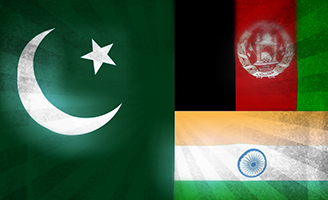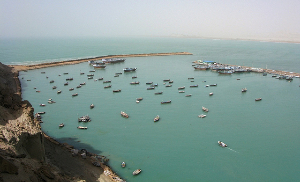China pushes Pakistan to fight terrorism selectively
By Sudha Ramachandran (05/08/2015 issue of the CACI Analyst)
While China prods the Pakistani government to crack down on Uighur militants and their bases in North Waziristan, it ignores and even appeases Islamabad’s support of anti-India terrorist groups and has rushed to Pakistan’s defense in international forums. While this may endear Beijing to the Pakistani establishment, a selective approach to terrorism is not productive in the long run as groups like the East Turkistan Islamic Movement are drawing strength from Pakistan’s Inter-Services Intelligence’s terrorism network.

Uzbekistan concerned over SCO expansion
By Farkhod Tolipov (05/08/2015 issue of the CACI Analyst)
The Shanghai Cooperation Organization (SCO) held its annual summit on June 9-10, 2015, in the Russian town of Ufa, which was an historical turning point in the organization’s evolution. It adopted a Development Strategy towards 2025 and admitted India and Pakistan as full members. Uzbekistan has taken over the Chairmanship of the SCO from Russia for the next one year period. During the summit, Uzbekistan’s President Islam Karimov expressed concerns revealing Tashkent’s reluctant acknowledgement of the fact that from now on the SCO will be more than just a Central Asia-focused structure.

CACI Analyst, May 13, 2015
Contents
Analytical Articles
PAKISTAN AND AFGHANISTAN-INDIA COOPERATION, by Sudha Ramachandran
TURKEY, ARMENIA, AND THE POLITICS OF GENOCIDE RECOGNITION, by Emil Souleimanov
KAZAKHSTAN TO REFORM ITS CULTURAL SECTOR, by Rafis Abazov and Andrey Khazbulatov
WILL TURKISH STREAM COMPETE WITH THE SOUTHERN GAS CORRIDOR?, by Natalia Konarzewska
Field Reports
REPUBLICANS STRENGTHEN POSITION IN RESHUFFLED GEORGIAN GOVERNMENT, by Eka Janashia
KYRGYZSTAN TO HOLD ANOTHER CONSTITUTIONAL REFERENDUM, by Arslan Sabyrbekov
PRESIDENT SARGSYAN AND COUNTERPARTS COMMEMORATE ARMENIAN GENOCIDE, by Erik Davtyan
AZERBAIJAN CRACKS DOWN ON ACTIVISTS AHEAD OF EUROPEAN GAMES, by Mina Muradova
Pakistan and Afghanistan-India Cooperation
By Sudha Ramachandran (05/13/2015 issue of the CACI Analyst)
Afghan President Ashraf Ghani’s recent overtures to Islamabad have contributed to a perception of him as pro-Pakistan. There is concern in India that the strong relationship it built with Kabul during Hamid Karzai’s presidency is under threat and that it is losing ground to Pakistan. However, India should not be unduly worried on this score. Ghani’s recent visit to Delhi, though long overdue, underscored Delhi’s and Kabul’s shared vision on regional trade.

India to Invest in Iran's Chabahar Port
By Sudha Ramachandran (11/26/2014 issue of the CACI Analyst)
The Indian government’s decision in late October to participate in the development of Iran’s Chabahar port will jump-start this long-delayed project. The port’s expansion will boost its emergence as a major transshipment hub and its strategic location is expected to transform the region’s geopolitics. But will this ambitious project realize its full potential given unrest in the Sistan-Balochistan province, where it is located, and the prospects of a civil war looming large in Afghanistan?







